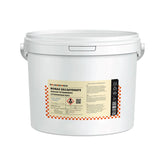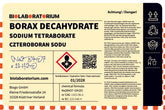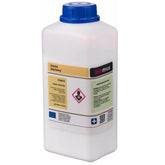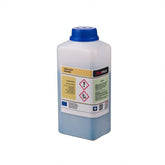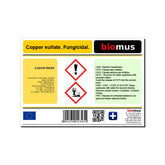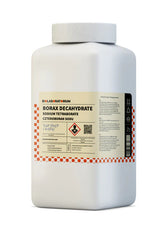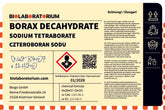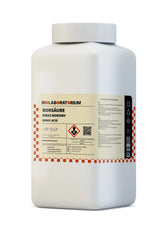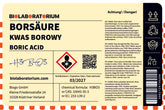Graphite – Industrial and Technical Applications of Graphite
Graphite is a fascinating and versatile material that plays an important role in numerous industrial and technical applications. As one of the allotropes of carbon, graphite is characterized by a number of unique properties that make it an indispensable component of modern production processes.
In this blog post, we want to take a look at the various industrial and technical applications of graphite and explain why this material is so valuable and indispensable.
Graphite in the metal industry
One of the main application areas of graphite is the metal industry. Due to its high temperature resistance and resistance to chemical attack, graphite finds diverse uses in smelting furnaces, foundries, and high-temperature processes.
Graphite electrodes, for example, are an indispensable component of electric arc furnaces used in the steel and aluminum industry. The electrodes conduct current into the furnace, enabling the melting of metals at extremely high temperatures. Without graphite, these processes would not be possible.
Furthermore, graphite molds and crucibles are used in mold making to produce complex metal castings. The dimensional stability and thermal conductivity of graphite are crucial here.
Graphite as a lubricant and coating
In addition to its use in high-temperature applications, graphite is also used as a lubricant and coating material. The low friction and high temperature resistance of graphite make it an ideal lubricant for machinery and equipment operating under extreme conditions.
Graphite coatings also serve to protect surfaces from corrosion, wear, and abrasion. Such coatings are used, for example, in the chemical and petrochemical industry, where they can significantly extend the service life of plant components.
Graphite in Electrical and Electronic Applications
Due to its excellent electrical conductivity, graphite is also used in many electrical and electronic applications. Graphite-containing materials are used, for example, in electrodes for fuel cells, lithium-ion batteries, and supercapacitors.
Furthermore, graphite components are used in high-performance electronics such as power semiconductors and high-frequency applications. Here, the high thermal conductivity of the material enables efficient heat dissipation.
Graphite in Chemistry and Industry
In addition to the already mentioned application areas, graphite also finds diverse uses in the chemical industry. Due to its resistance to most chemicals and acids, it is used in containers, reactors, and equipment parts that come into contact with aggressive substances.
Graphite also plays an important role in sealing technology. Graphite seals are characterized by their high temperature and chemical resistance and are therefore used in numerous industrial applications.
Promising Applications of Graphite
The importance of graphite will continue to increase in the future as the material is crucial for many promising technologies. For example, graphite is an important component of lithium-ion batteries used in electric vehicles and renewable energy systems.
Furthermore, graphite will also play an important role in the development of high-performance electronics, fuel cells, and superconducting materials. The unique properties of the material make it an indispensable component of modern technologies.
Conclusion
Graphite is a fascinating and versatile material that plays a crucial role in numerous industrial and technical applications. From the metal industry to the electronics industry and chemistry - graphite has become indispensable in many production processes.
With its excellent properties such as high temperature resistance, corrosion resistance, and electrical conductivity, graphite offers unique solutions for a variety of challenges. The importance of this material will continue to grow in the future as it is indispensable for many promising technologies.
Discover the fascinating world of graphite and its diverse industrial and technical applications!

